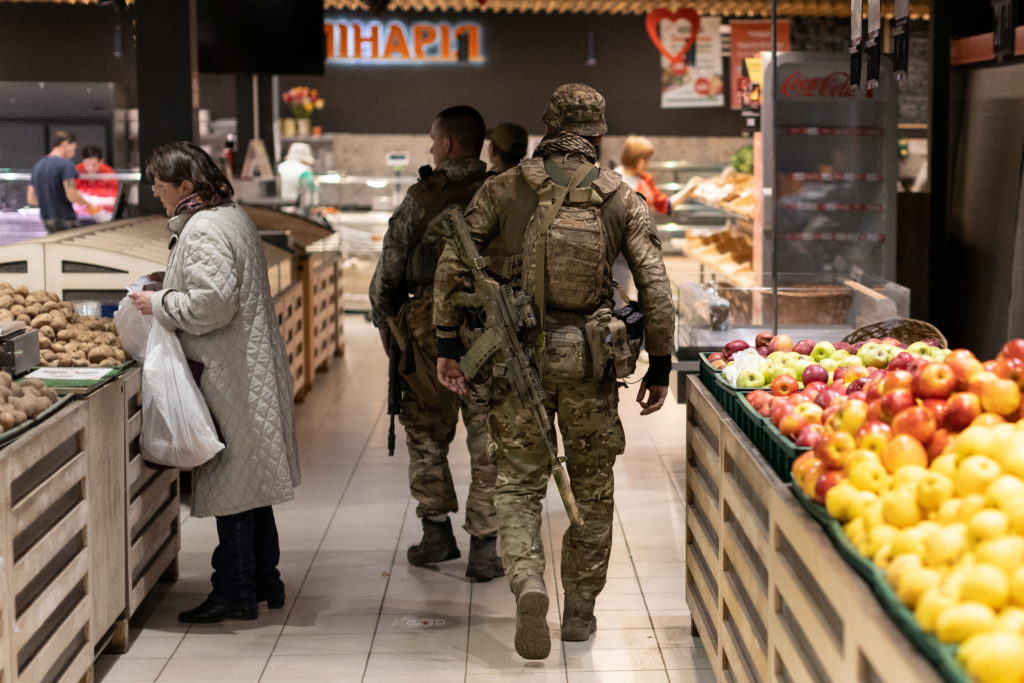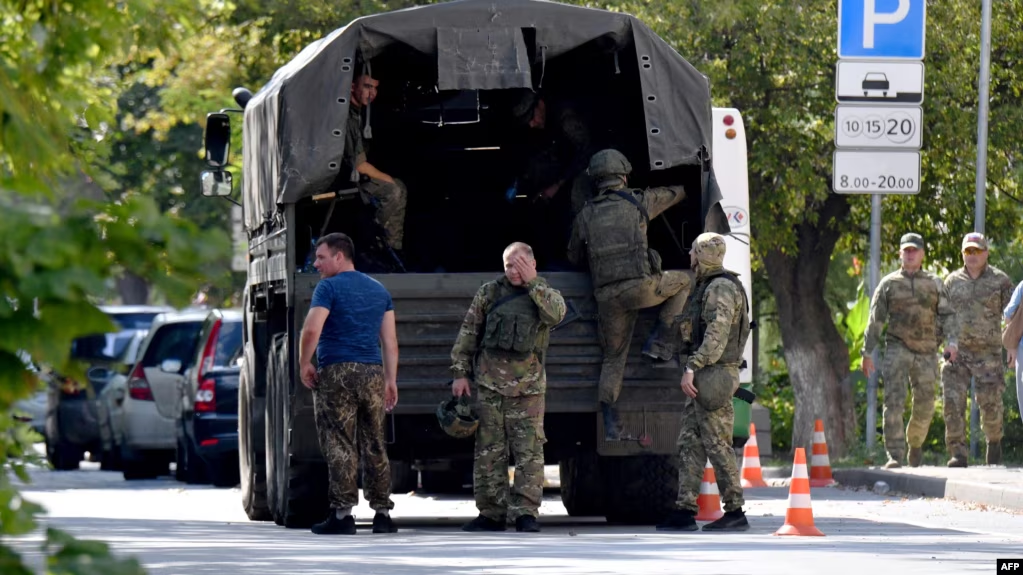A resident of Ukraine’s Lugansk region, currently occupied by Russia, was sentenced to 16 years in prison for “high treason” on Friday, according to Russia’s Federal Security Service (FSB).

The sentencing reflects Moscow’s ongoing crackdown on individuals it accuses of collaborating with Ukraine, as well as a broader pattern of imprisoning Ukrainians in Russia and territories under its control.
The unnamed individual was convicted by a military court in Rostov-on-Don, southern Russia. Prosecutors alleged that he had passed information about Russian armed forces to Ukraine’s Security Service (SBU).
The FSB also accused the man of being an accomplice in terrorist acts and illegally handling and transporting explosives. He is set to serve his term in a high-security penal colony.
State-run media outlets published a video, reportedly recorded by the FSB, showing the man’s arrest. The footage depicts FSB officers stopping a car, dragging the man out, and taking him into custody. The man’s face was blurred as he appeared on camera, allegedly admitting to being recruited by the SBU in 2016.
Russia frequently releases similar confession videos following high-profile arrests, though critics argue such recordings often lack transparency and may involve coercion.

The sentencing coincides with President Vladimir Putin’s call for heightened vigilance by Russian security services, especially in counterintelligence operations.
Addressing security personnel, Putin emphasized the need to “identify spies and traitors” and intensify anti-terror measures amid the Kremlin’s protracted military campaign in Ukraine.
In a related development, Russian independent media reported the apparent suicide of Roman Shved, an activist sentenced on Thursday to 16 years in prison. Shved, a 39-year-old anarchist, was convicted of carrying out an arson attack on a government building in 2022 after Russia announced a military mobilization.
According to the Mediazona website, prison officials in Rostov confirmed Shved’s death, which occurred shortly after his sentencing. Social media reports suggest he took his own life.
Russia has punished thousands of its citizens for opposing the war in Ukraine, employing heavy-handed measures against both dissenters and individuals accused of espionage or sabotage. Rights groups have condemned these actions as part of a growing crackdown on civil liberties.
The Kremlin has consistently denied allegations of targeting civilians or conducting politically motivated trials.


